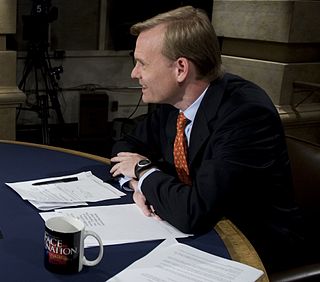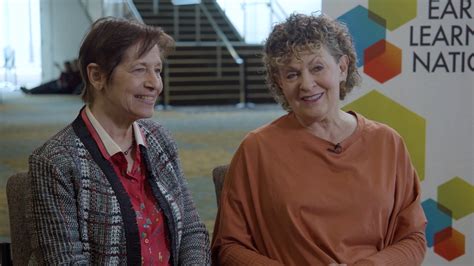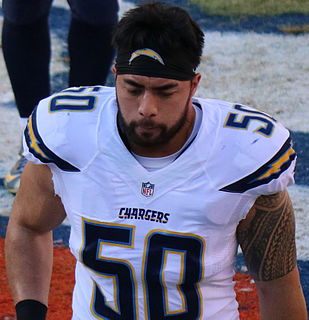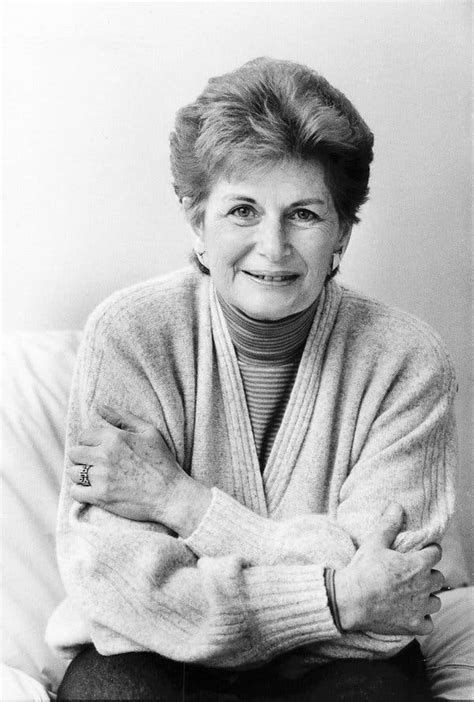A Quote by Alison Gopnik
Childhood is a fundamental part of all human lives, parents or not, since that's how we all start out. And yet babies and young children are so mysterious and puzzling and even paradoxical.
Related Quotes
Babies learn most of what they know from interactions with their parents, but not of the formal, instructional variety. Babies learn from spontaneous, everyday events--the mailman at the door with a package to open...all of which need adult interpretation. They are real events of interest and concern to babies and young children....By contrast, infant education is artificial and out of context.
With the marketplace urging parents to buy all manner of things to make their babies ‘smart,’ Gallagher’s book offers parents a view based in science on how much babies really know and figure out on their own. Parents will have fun with this book and gain new respect and awe for their babies’ amazing capabilities.
Ever since I was young I understood the whole meaning of life isn't how much money you accumulate, how much fame you experience, it's how many lives you touch, how many faces you bring smiles to. I see myself back in Hawaii doing something in the community to improve the lives of young children. Everything I've done is to prepare myself to give back.
Mothers and fathers act in mostly similar ways toward their young children. Psychologists are still highlighting small differencesrather than the overwhelming similarities in parents' behaviors. I think this is a hangover from the 1950s re-emergence of father as a parent. He has to be special. The best summary of the evidence on mothers and fathers with their babies is that young children of both sexes, in most circumstances, like both parents equally well. Fathers, like mothers, are good parents first and gender representatives second.
Parents who are cowed by temper tantrums and screaming defiance are only inviting more of the same. Young children become more cooperative with parents who confidently assert the reasons for their demands and enforce reasonable rules. Even if there are a few rough spots, relationships between parents and young children run more smoothly when the parent, rather than the child, is in control.
Children make you confront your own childhood. Which I think is common. Suddenly you're remembering your own parents as parents, not to mention the fact that you're confronted by them as grandparents. So you also have that terrible shock, a mirror image of your own. You suddenly seem to be so helpless in the face of young children. And you think, "How did you ever bring up me?"
The authoritarian child-rearing style so often found in working-class families stems in part from the fact that parents see aroundthem so many young people whose lives are touched by the pain and delinquency that so often accompanies a life of poverty. Therefore, these parents live in fear for their children's future--fear that they'll lose control, that the children will wind up on the streets or, worse yet, in jail.
One can tell a child everything, anything. I have often been struck by the fact that parents know their children so little. They should not conceal so much from them. How well even little children understand that their parents conceal things from them, because they consider them too young to understand! Children are capable of giving advice in the most important matters.
The thing that strikes me now when I think about the Wilderness of Childhood is the incredible degree of freedom my parents gave me to adventure there. A very grave, very significant shift in our idea of childhood has occurred since then. The Wilderness of Childhood is gone; the days of adventure are past. The land ruled by children, to which a kid might exile himself for at least some portion of every day from the neighboring kingdom of adulthood, has in large part been taken over, co-opted, colonized, and finally absorbed by the neighbors.




































